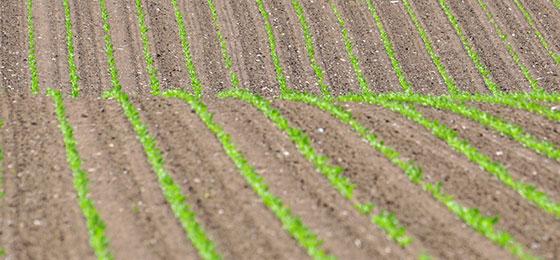Findings with practical relevance

Detailed understanding of land use facilitates the adoption of targeted measures. One promising approach to sustainable soil management is biological pest control.
If we want to know where Swiss soils are not used sustainably, we need to know all about land use. Using remotely sensed data, researchers of the Land use model project developed a control system in high temporal and spatial resolution.
The Soil-improving cropping systems project showed that no-till farming and organically managed soils generally display a higher structural stability and better conditions for soil organisms. But they offer yields that are lower than conventionally managed soils. A compromise has to be found between intense management and soil protection.
Using entomopathogenic nematodes (EPN) and bacteria (EPB) might offer solutions: researchers of the Organic pest control project developed a product with EPN and EPB to fight soil-dwelling pest insects. After further optimisation it will be available as an alternative to common pesticides. A marketable solution is in development.
The focus study Agricultural soil market concludes that agricultural soil markets in the cantons of Aargau, Zurich and Graubünden tend to function quite well and largely meet the target of creating a land market within agriculture. But this does not necessarily lead to the sustainable use of soil as a resource. Instead, changes in land use are mostly the result of planning or plots that "by chance" happen to be available for land compensation.
